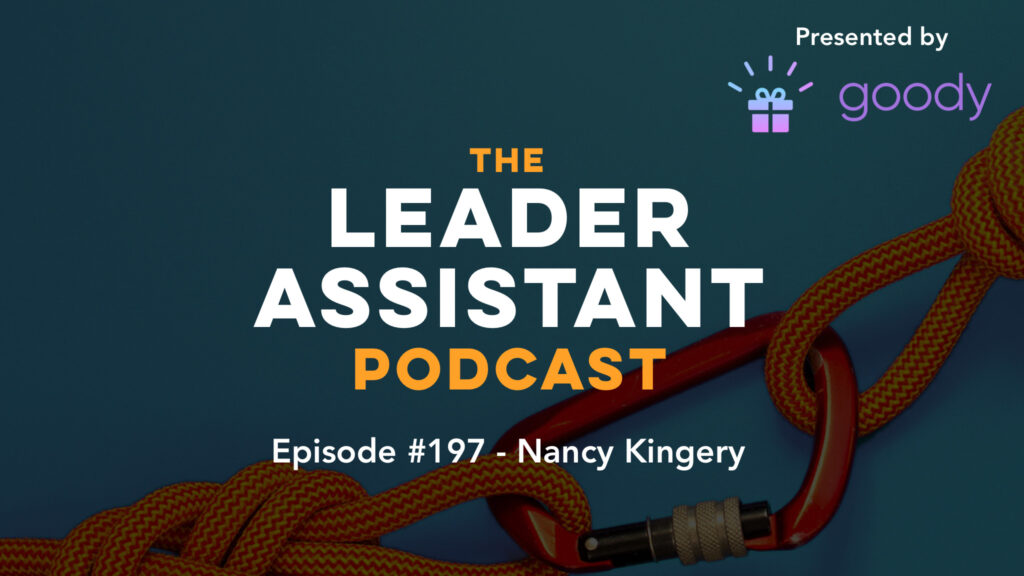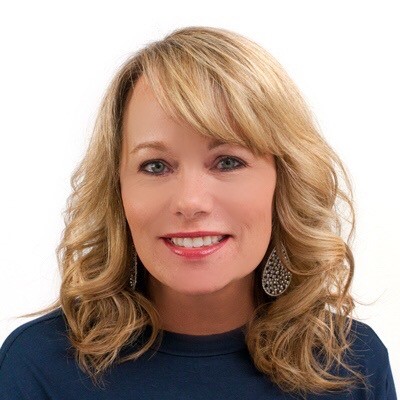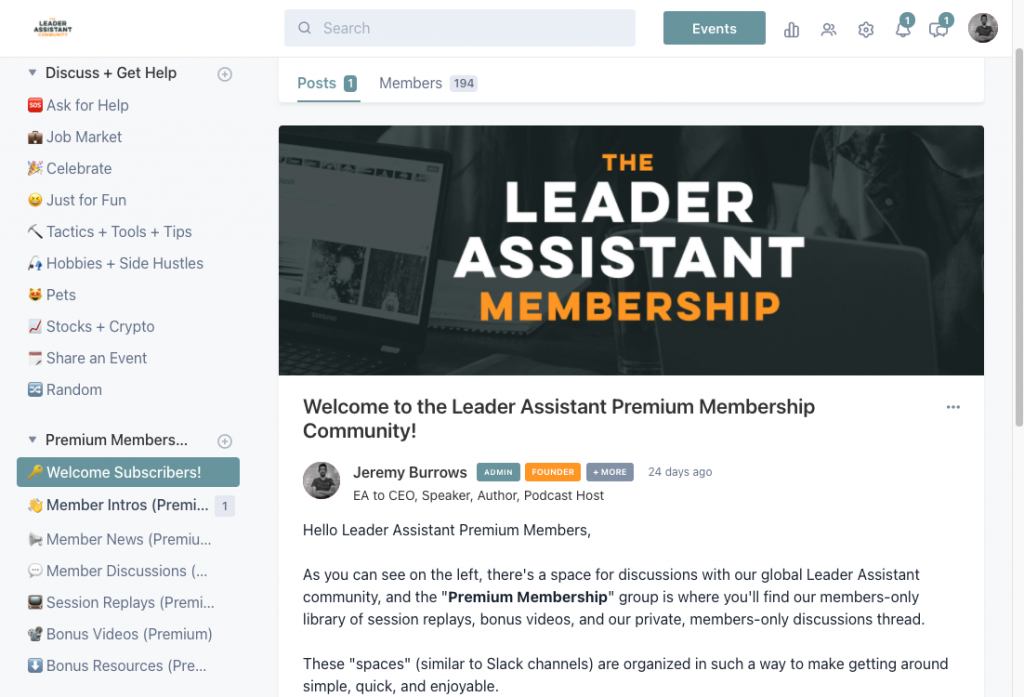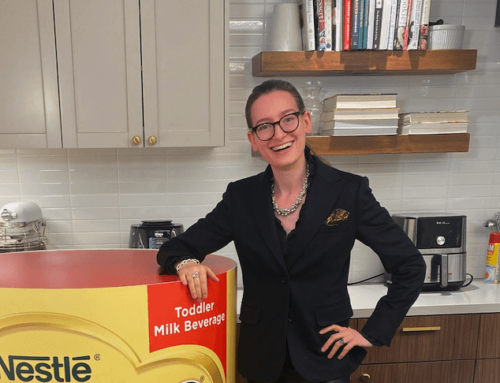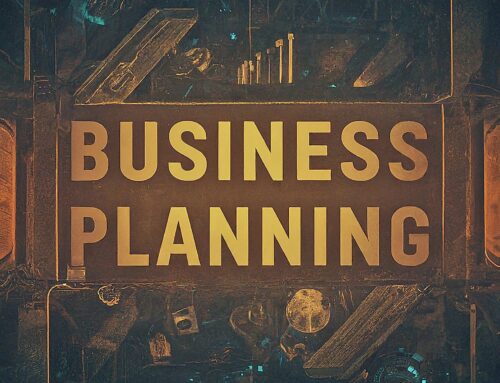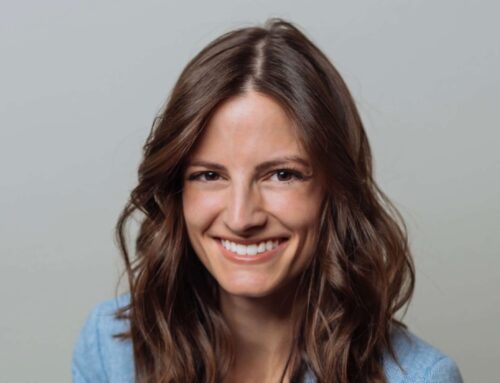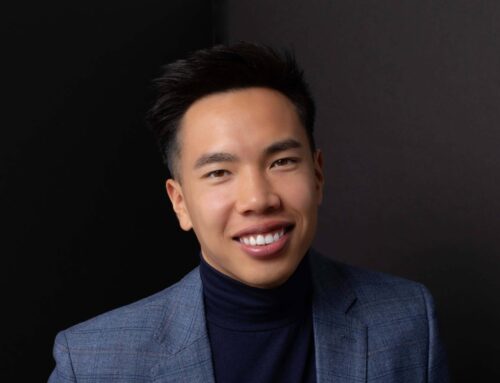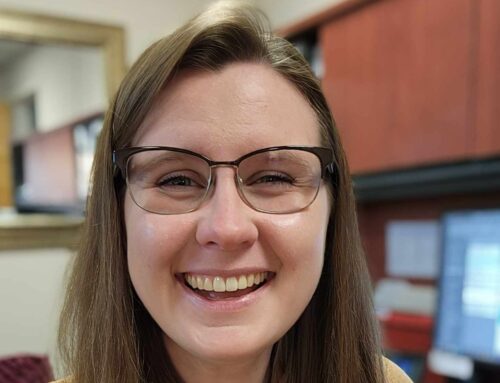Nancy Kingery is the Executive Assistant to the President & CEO at Illinois Mutual Life Insurance Company in Peoria, IL. Nancy has over 25 years of experience supporting C-Suite level executives in 3 unique and completely different industries.
In this episode, Nancy and I talk about creating culture, leading from an often “invisible” leadership role, and working with an executive who has never had an assistant.
LEADERSHIP QUOTE
Let us all be the leaders we wish we had.
– Simon Sinek
CONNECT WITH NANCY
ABOUT NANCY
Nancy Kingery is the Executive Assistant to the President & CEO at Illinois Mutual Life Insurance Company in Peoria, IL. Nancy has over 25 years of experience supporting C-Suite level executives in 3 unique and completely different industries. Nancy is an enthusiastic and personable career Executive Assistant. She is passionate about fostering an atmosphere of intentional relationships and JOY, while maintaining a strong ability for maximizing efficiency, streamlining processes, and finding solutions.
THE LEADER ASSISTANT PODCAST IS PRESENTED BY GOODY
A special thanks to my sponsor, Goody!
If you send business gifts to employees, clients or sales prospects, Goody is a game changer. You can send one gift or hundreds at the same time, without ever worrying about shipping details. With Goody, your gift recipients provide all their shipping info, and they can even swap out your gift for another option if they prefer. It’s free to start gifting and you get a $20 credit when you sign up. Oh and if you mention you heard about Goody on The Leader Assistant Podcast, Goody will add an extra $10 credit to your account.
Go here to start gifting today!
THE LEADER ASSISTANT PREMIUM MEMBERSHIP
To learn more about how you can join growth-minded Leader Assistants, check out our Leader Assistant Premium Membership for ongoing training, coaching, and community.
THE LEADER ASSISTANT BOOK
Download the first 3 chapters of The Leader Assistant: Four Pillars of Game-Changing Assistant for FREE here or buy it on Amazon or Audible.
LEADER ASSISTANT LIVE EVENTS
Check out our constantly updated schedule of events for admins and assistants at LeaderAssistantLive.com. Including our all-day, online leadership workshop at leaderassistantlive.com/workshop.
JOIN THE FREE COMMUNITY
Join the Leader Assistant Global Community here, or the Facebook Group here for bonus content and to network with other assistants who are committed to becoming leaders!
SUBSCRIBE
Subscribe to The Leader Assistant Podcast so you don’t miss new episodes!
You can find the show on Apple Podcasts, Spotify, Google Podcasts, Pandora, and Stitcher.
Join my email list here if you want to get an email when a new episode goes live.
LEAVE A REVIEW
If you’re enjoying the podcast, please take 2 minutes to rate and review the show on Apple Podcasts here. Each review helps me stay motivated to keep the show going!
—
EPISODE TRANSCRIPT
Nancy Kingery 0:00
Hi I’m Nancy Kingery and today’s leadership quote comes from Simon Sinek let us all be the leaders we wish we had
Podcast Intro 0:13
The Leader Assistant Podcast exists to encourage and challenge assistants to become confident game changing leader assistance
Jeremy Burrows 0:28
The Leader Assistant Podcast is brought to you by goody. If you’re starting to think about holiday gifts for your team like I am, goody is a game changer. They have amazing gifts that people will really love including brands that give back to charitable causes. As a longtime executive assistant, I’ve always been nervous about holiday gifting season. But thankfully, goody’s platform lets you send one gift or hundreds at the same time without ever worrying about shipping details. Can I get an amen? With goody your gift recipients provide all their shipping info, and they can even swap out your gift for another option if they prefer. It’s free to start gifting and you can get a $20 credit when you sign up. Oh, and if you mentioned you heard about goody from The Leader Assistant Podcast goody will add an extra $10 credit to your account. Go to leaderassistant.com/goody to start gifting today. Hey everyone, welcome to The Leader Assistant Podcast. It’s your host, Jeremy Burrows. And I’m excited for you to be joining in and listening to Episode 197. We’re approaching episode 200 Which is exciting. You can check out the show notes for this conversation. I’m gonna bout to have with Nancy Kingery. Leaderassistant.com/197 That’s leaderassistant.com/197. So Nancy, how’s it going? Thank you for joining me.
Nancy Kingery 2:02
Thank you for having me. I really appreciate it. I’m excited to talk with you today.
Jeremy Burrows 2:07
What part of the world are you in?
Nancy Kingery 2:09
So puree Illinois. So it’s about three hours. Northeast of St. Louis, where you’re from, right?
Jeremy Burrows 2:18
Yeah, I was gonna say I, I made a trip to Peoria. So I’m actually from Kansas City. But I lived in St. Louis for about 16 years. Okay, and I just moved back during COVID to be closer to family. But I drove to Peoria for a concert one time by myself because I couldn’t find anybody to go with me.
Nancy Kingery 2:40
Yeah, it’s just right. Central Illinois. So
Jeremy Burrows 2:45
yeah. Awesome. Not bad. Is it like, a couple more hours to Chicago? Or is it about right between?
Nancy Kingery 2:52
Yeah, it’s only three hours southwest of Chicago. So we’re pretty close to both Chicago and St. Louis. Indianapolis is only about two hours away. So it’s kind of centrally located in the United States.
Jeremy Burrows 3:07
Nice. Awesome. And are you from that area?
Nancy Kingery 3:10
I’m actually from Iowa. And my husband’s job brought us to Illinois about 30 years ago. Okay,
Jeremy Burrows 3:16
cool. Well, let’s jump in. Before we talk about your professional career. Tell us a little bit about yourself. What are your hobbies? Do you have cats, dogs, fish, kids, those types of things.
Nancy Kingery 3:30
I have two grandchildren, a son and a daughter and I love to mainly I love to bike. I’ve, I bought an E bike during COVID to get out and do something and I’m completely hooked on that and will never go back probably to riding a normal bike again. So I’ve had a lot of fun with that with my husband and some friends. And so I like to bike and I like to bake and cook and definitely did that more during COVID play cards visit with friends. So those are my hobbies.
Jeremy Burrows 4:04
Nice. I actually just got an E bike as well. Which Which one did you go with?
Nancy Kingery 4:09
I went with a specialized.
Jeremy Burrows 4:13
Okay.
Nancy Kingery 4:14
Yeah, I’m really enjoying it. I think that I’m not getting quite as much exercise, but I can go twice as far. So I’m counting. I’m counting it.
Jeremy Burrows 4:27
Yeah, I got I think I got a Red Rover and with fat tires, and it’s been like anytime there’s a nice day. I’m like making an excuse, hey, I’ll go pick up lunch or I’ll go you know, do this or that. And yeah, it’s especially we live in a very hilly neighborhood. So it was like I wasn’t really going to ride my bike around the neighborhood but now I can so
Nancy Kingery 4:50
yes, it’s been a lot of fun. I’ve thoroughly enjoyed it and a lot of my friends have also bought them as well so we can all go as far as we want and not be too worn out.
Jeremy Burrows 5:00
Nice, nice. Well, let’s talk about your career. So, Nancy, you’ve been an assistant for a long time, why don’t you tell us how you got into the role and a little bit about your career journey as an assistant? Okay,
Nancy Kingery 5:15
well, I’m once again another accidental assistant. I know a lot of people are fallen into that career, I have started out my assistant career at Maui Jim sunglasses. And they are a premium global sunglass company based in Peoria, Illinois. And a friend of mine was working there, and in the 90s, in the mid 90s. And they needed somebody to come in and pack sunglasses up. And I had been in banking previously, but took a few years off to raise my kids. And so I started, I started there and distribution and I did many, many hats there, I did. Inventory and quality control and a little bit of repairs, pick the orders packed the orders. So you know, anyone that’s been part of a smaller company before it, you know, it goes global, wears many hats and does a lot of jobs. And so eventually, I moved into the accounting department, they needed somebody to help them with a conversion from an as 400 system to an a SW, which will probably show my age when I talk about those systems. But I was part of an accounting department where I took all of the old account numbers from the as 400 and converted them to the new account numbers and as W system. And I did that for a year. And then when the transition was over human resources department needed somebody. So this would be really my first entry into the assistant world. I was there for five years, there was a small department of free women. And we were a close knit team. And we did. That’s where I learned all my event planning and onboarding of new employees. I met a lot of new people as we grew bigger and, and broader, more salespeople. I really enjoyed all of what I was doing in the HR department and I gained so many valuable lessons there. That after five years, the Vice President of Sales and Marketing, moved from California to Peoria, Illinois and needed an assistant. And so my current executive in HR at the time, asked me if I would like to help him out as well. And so I was working for the HR VP and the sales VP at the same time, and it was getting to be quite busy for me to do both. And so she had told me to go ahead and just pick which department I would rather focus my full time energy on. And so I picked sales and marketing because I’d already had five years in HR and I thought I’ll try something new. So from there, I worked 14 years in the sales and marketing there at Maui Jim sunglasses, once again, wearing a lot of hats. I did mostly onboarding of sales reps, coaching and training, setting up their training. In the PRA office and out in the field. I did a lot of sales, metric tracking. I helped create contests, designed fliers, I did tours of the company, we ended up building a huge prescription sunglass lab, state of the art and I ended up giving tours to accounts, I would fly them in on the Maui Jim jet. And then give them a tour of the company and feed them lunch and give them some sunglasses and send them on their way. And so I really enjoyed that. Working, met a lot of my friends at this company and still do keep in contact with most of them. From there, I decided I had was getting comfortable in my role and I felt like I needed to try something new. And so I got on in that supply chain department at a health care system here in Peoria. OSF healthcare, it’s one of the large health care systems in Peoria. And so I learned supply chain I learned health care, it was completely new industry for me. I worked for the chief supply chain officer and had a wonderful relationship with Him, as well as my department. I loved working in that department. I learned contracts. I learned how to oversee revenue received from rebates. I did some payroll processing. So I learned a lot of new things. Also new terminology, supply chain terminology, healthcare terminology, things that I had never used working in my previous role.
Jeremy Burrows 9:56
So you went from industry completely different industry. What? A lot of times people are nervous when they’re say, Oh, I’ve been at this one industry for 10 years as an assistant, I don’t know if my skills are transferable, what would you say to people who are questioning whether or not they can, they can keep up in a different industry,
Nancy Kingery 10:19
I have to admit that it was very scary for me to leave after that long and being comfortable in what I was doing. I had luckily had good mentors there. And my new company, and I utilized their expertise. The person that I took over from was still in my department, I was able to have her on hand, you know, I asked a lot of questions. I worked a little bit longer hours at first just to learn my job, I would not be afraid of changing because obviously, I’ve changed again, never thought I would at this point in my career change jobs so quickly. But I would definitely encourage somebody, if you feel like you need to learn something new, you do transfer some of those skills over your executive assistant skills, but you’ll also learn a lot of new things and each industry that you go in. And I’m very grateful that I was able to learn what I did when I was at OSF healthcare. felt very fortunate my boss that I was working for at the time, my executive got a job in Ohio and moved away. And within a week, I got a message on LinkedIn from this insurance company in Illinois from the recruiter and HR department. And I didn’t think much of it at first, because you know, my executive had just moved away I was, you know, didn’t have anybody I was directly reporting to I loved where I worked and who I worked with, and just didn’t really answer it for a couple of weeks. But then when I got back into it, I’m like, Oh, this isn’t just some random recruiter, you know, you get those emails all the time. It’s actually somebody that works in HR department, I thought they needed an assistant that had some experience to work for their president and CEO who had never had an assistant before. So I did get a hold of her. And I said, Well, I’m I am interested in this job, I think it would be something that would be challenging for me. And I would really enjoy trying to help a new executive, learn how to work with an assistant. So I ended up getting interviewed and I liked who I was interviewing with, I thought the company had had great core values, and vision and just very kind people. I could tell there was a good culture there. And so I was very excited to get the offer to come and work. And I’ve been here for three years, right before COVID head. And not three weeks before we shut down. I started this new position.
Jeremy Burrows 12:58
So okay, there’s a lot a lot to talk about. But one thing I want to highlight and ask you about if it’s okay is, you know, you mentioned your executive had never had an assistant before, right? That’s correct. So what are some things that you did to show this executive? How to work with an Assistant, what are tips, maybe, for those listening, who are trying to build a partnership with someone who is not used to having an assistant.
Nancy Kingery 13:29
So when I was talking with her in my interview, I could definitely tell she didn’t really know how to begin to figure out what she needed. But I knew what she needed. And it’s all about the communication. It’s all about knowing and getting to know your executive, personally and professionally. That’s very important to me. I definitely made that clear in my interview that I really would like to get to know you personally. I need to know how you think and how you would answer questions. I think it helps having that good communication because you are a bridge, you are a bridge of communication to the rest of the company. By working with an assistant. I think she she realized how much she was not getting done in her day. And it was such an a fun challenge for me to free up time for her to get you know, things done with strategy and, and vision I was pretty insistent on giving her time to get things done during the day. Whereas I think before she was trying to do it all and and within back to back meetings constantly. And I work for a fifth generation family owned company. And so I think when you’re a smaller company like that, and in the leadership role, you tried to do it all
Jeremy Burrows 15:02
Yeah, that’s great. So I think that I’d love to hear maybe was there a conversation that you had? Or a moment where you realized, okay, or your executive realized? Oh, okay, this is, this is what having consistent is all about? Does that make sense? Yeah,
Nancy Kingery 15:24
it does make sense, I sat down with her and, you know, on the first couple weeks, and just kind of listed the things that I could do for her, you know, not it’s not just calendar management, but it has been an I don’t like to hear gate gatekeeper, I would rather be described as a gateway, you know, opening up those opportunities for her to have more meaningful and productive relationships with those she works with. And throughout the whole company. When we started in, you know, with the COVID, we did a company wide chat, and this has been, really, I think, very successful, and the rest of the company getting to know who she is, you know, that’s not always possible, when you are mainly working with an executive team. And it’s been a good, you know, it took me a good six months to get her to give up some stuff, you know, and tell her that these are the things that I can do for you, you know, she was readily able to give up some of the metric tracking, you know, for sales incentives. And, but when we, when I first started, she was talking about the fact that we were going to start running on an EOS system. And I know, you interviewed another assistant that runs on EOS. And it’s kind of Entrepreneurial Operating System. So my first week in, she’s like, Okay, we’ve been talking about this with the leadership team. But now we’re gonna go ahead and implement it. And I want you to be the subject matter expert. And I want you to learn this traction tools, software, inside and out so that you can train the management and the rest of the company to run on this system. So for two years, we worked on eventually implementing this throughout the entire company. So a lot of my job is metric tracking, it’s getting, you know, it’s communicating deliverables. You know, just being able to help with this system helps with meetings so that you don’t run in circles, that gives you an agenda. So a lot of my job is managing deliverables and the information flow from my executive to the team or vice versa.
Jeremy Burrows 17:54
That’s great. I was just about to ask you, but you answered the question. I was gonna ask you what were a few of the things that your executive realize you could do to support her and yeah, that’s great that that system is, whatever system you use, it’s important, important that everyone’s on the same page and using the same system. So that’s great that you’re able to kind of run point on that.
Nancy Kingery 18:18
Yes, it’s been, it’s been fun for me to learn the system myself. And it’s been fun to coach and train on it. Yeah.
Jeremy Burrows 18:26
So okay, when I ask my guests on the podcast kind of in advance, when they’re when you’re scheduling time to chat, I usually ask what specific topics you would like to discuss on the show. And you mentioned a couple and one of them is creating culture, and invisible leadership. So tell us a little bit about how you’ve created culture, at the organizations that you’ve worked with and for the executives and the teams that you’ve worked with, and then maybe even just dive in a little bit to the idea of invisible leadership.
Nancy Kingery 19:03
So I think part of creating culture is bringing an attitude a joy to work, you know, it’s not all, you know, joyful. Sometimes, you know, there are challenges. But I think if you can come with the right attitude, and as you interact with all levels of the company, and actively engage and intentional relationships, I think that helps create culture within your team in the committee’s that you would volunteer for any charities that you help help with creating a culture of being that friendly face and intentional relationships, kind sociable. I think some times we we really believe that leadership and HR are the ones responsible for creating the culture, but it’s every person individually creating that group called culture and making the place you work somewhere that people wonder why you like to work there and what makes it so great. It is the people. And if you can be part of that and be, you know, that friendly face to a new person, or you know, be involved in personal relationships, get to know your co workers. That is the culture that starts with just one person. I’ve always believed that. And I think that you can bring joy into the workplace every day and create a good culture in your department and your company through that. Invisible leadership. I like talking about that, because executive assistants, as you point out in your book are definitely invisible leaders. We don’t ask for the credit. We don’t seek it. In, you know, we don’t seek credit or being in the spotlight. But I read a quote the other day, and I wasn’t sure who actually did quote this, but I thought it was really interesting. Talking about invisible leadership, someone that is able to use unseen forces to positively impact their environment, unseen forces, that’s an executive assistant. Yeah. Being able to read the room, you know, being aware, being responsive, connecting the dots behind the scenes, mapping the needs, you know, for solutions. Being able to manage up, you know, if you’re an executive assistant, and you have an executive, that you need to be able to manage up in the right way, have good communication with your executive. But I liked that saying, I thought that was really interesting, the unseen force behind the impact you have as an executive assistant,
Jeremy Burrows 22:04
have you ever had that itch or that desire to be seen?
Nancy Kingery 22:12
I think the only time I would have that desire to be seen is if like, you’ve worked really hard on a project, you know, and you kind of want that pat on the back. That’s like, oh, man, you know, I put a lot of time into this and a lot of effort and, you know, your everyday things that you do, you know, that goes without saying that it’s definitely unseen, because most people don’t know what you do. But those big things, you know, the big projects, once in a while, I have to admit, it’s nice to get a good job.
Jeremy Burrows 22:43
Yeah, amen to that. Awesome, Nancy, well, what’s what’s kind of one thing that you wish you knew, back when you started your assistant career, that maybe if you could go back in time, or if you could tell those listening, who are newer in their career, I had one reached out to me the other day that say, Hey, I’ve only been an assistant for three months, just found out about the podcast. You know, what, what would you tell to your younger self? Just jumping into this career or to those listening to just just getting started?
Nancy Kingery 23:21
I would say definitely work, you know, make communication with your executives, your top priority, figure out what how they like to communicate, you know, is it email? Do they like to do it through chat? Do they like to be on the phone? I’ve had three completely different executives I’ve worked for. And actually, when I was at Maui, Jim, over the years, I worked for at least a half a dozen different executives, and everybody has a different way of communicating find out what that is. Because if you aren’t communicating and being that bridge, and you are assuming instead of asking questions, that is when I have made my biggest mistakes in my career is assuming too much assuming that their answer was going to be this without confirming or asking questions, because assumptions are the depth of communication, right? So that’s what I would say, don’t be afraid to ask questions. Don’t be afraid to get clarity. You know, you do have an influence on how your relationship progresses with your executive by your communication. So that would be what I would say. To my younger self, also, I do like to talk and I’m extroverted. I always have trouble not interrupting. Because I do like to visit and so I had taken the LinkedIn learning course by April Stallworth of last year. And one of the things she said in that course and I have it printed out as a reminder to myself to not you know, babble on too much and her. What she said was, be brief. Be brief. I can’t be gone. So I try. I try to remember that when I am, you know, reading the room and going into talking with my executive, what do I need to say, Come with solutions. You know, don’t come with the problem or the issue, but come with it in combination with the solution you’re going to give them.
Jeremy Burrows 25:22
Well said, Nancy. I appreciate it. Really, really thankful for you reaching out and having courage to say, hey, put me on the podcast.
Nancy Kingery 25:34
Well, thank you very much for having me. I’m so excited. I love your book. I try to promote it anytime I can. And I just feel very grateful to be on here talking with you today.
Jeremy Burrows 25:44
Awesome. Thank you so much. Well, how can people reach out to you is there is there a good way? Do you prefer LinkedIn? Is there anywhere else that people if they want to say hi and connect,
Nancy Kingery 25:53
definitely could connect or LinkedIn, I’d be happy to connect with anybody. I’d love to build my executive assistant peer community as well.
Jeremy Burrows 26:01
Awesome. Well, for those listening, I will share Nancy’s linked in URL in the show notes at leaderassistant.com/197 Leaderassistant.com/197. Nancy, thank you so much. Best of luck to you and Peoria, Illinois, and we hope to talk soon.
Nancy Kingery 26:22
Thank you so much, Jeremy for having me on your show. Have a good night.
Podcast Intro 26:36
Please leave a review on Apple podcasts.
Unknown Speaker 26:38
Goburrows.com

